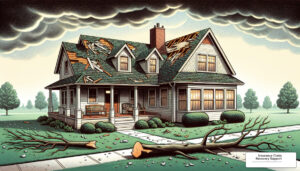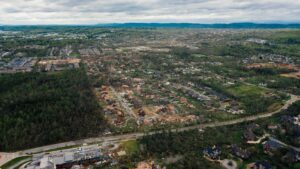5 Smart Ways to Find a Public Adjuster You’ll Wish You Knew Sooner

Discover the top five methods to select a public adjuster in Texas who best suits your claim needs. Find expert advice and essential tips for a smooth process.
Navigating the Unfair Game: Analogy of Insurance Claims and Sports Referees
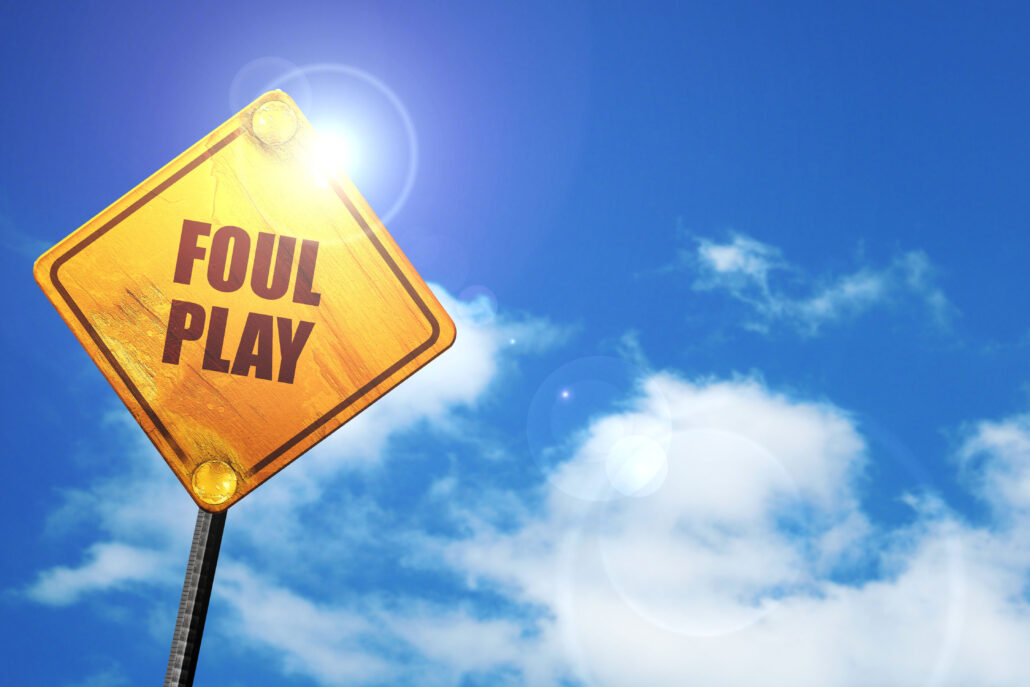
In the intricate world of insurance, policyholders often find themselves entangled in a process that bears an uncanny resemblance to the dynamics of a sports match governed by an unfair and biased referee. Just as a referee’s decisions can profoundly impact the outcome of a game, the insurance claims process can shape the financial fate […]
5 Devastating Public Adjusting Mistakes to Avoid
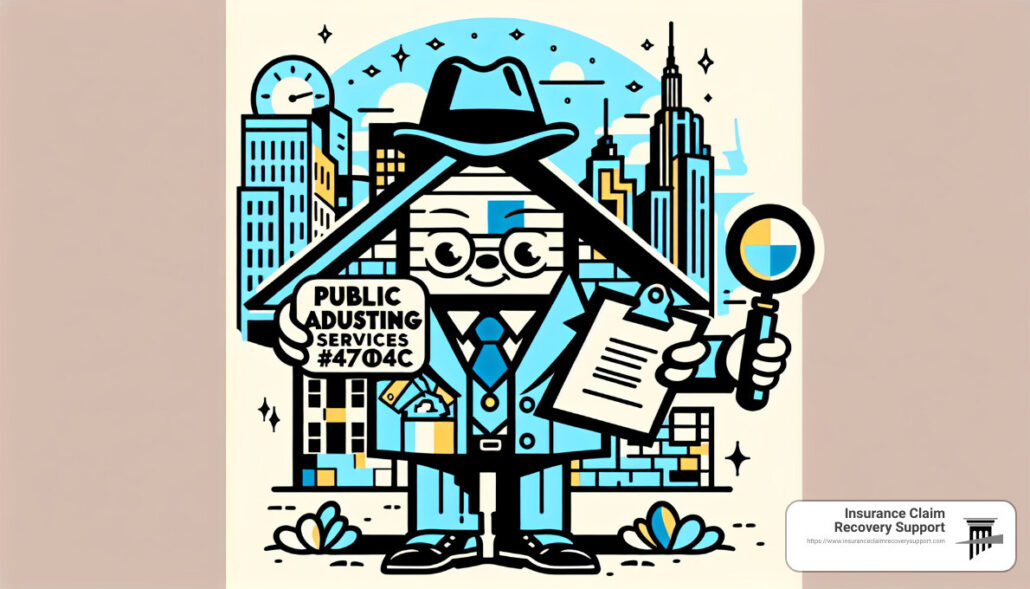
Introduction Have you ever experienced the disappointment and frustration that comes with an underpaid insurance claim or unnecessary delays in the settlement process? If so, you may have considered seeking assistance from public adjusting services to help manage your claim. However, it’s not as simple as just hiring any public adjuster. There are potential pitfalls […]
Commercial Large Loss Panel Moderator – National Conference

Scott Friedson CEO of Insurance Claim Recovery Support Public Insurance Adjusters moderated the Commercial Large Loss panel at Win The Storm Conference. The distinguished nationwide group of contractors, public adjusters, engineers, attorneys, hygienists, and consultants covered important insurance claim topics, dispelled misconceptions, and covered essential issues every policyholder and insurance professional who works or aspires […]
Video: What Is A Good Public Adjuster?
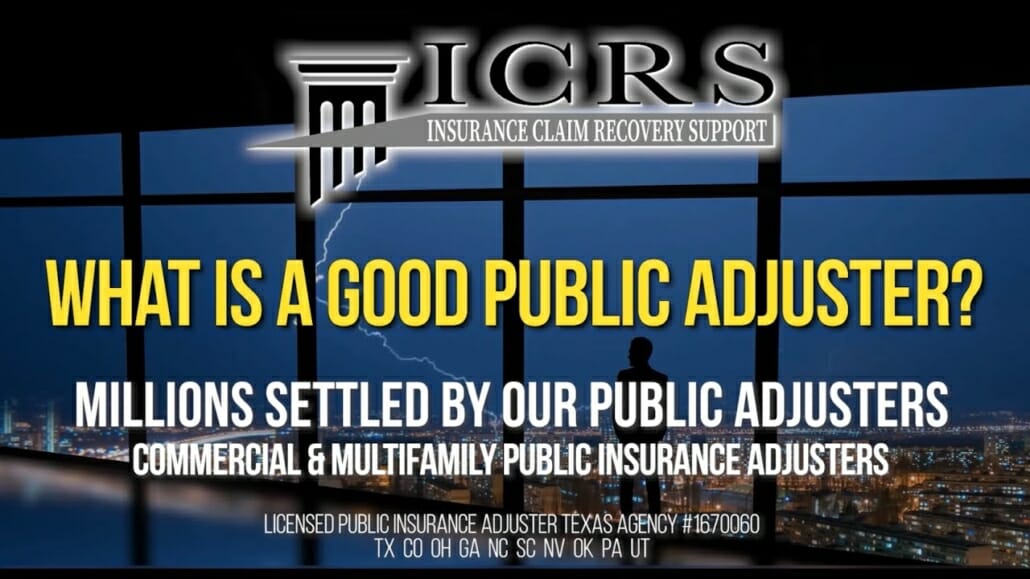
Searching for “Public adjuster near me”? Try searching for “What is a GOOD public adjuster?” A public adjuster is a private, independent, licensed, bonded, and professional claims adjuster who settles property damage insurance claims exclusively on behalf of the insured that the policyholder may hire to help settle an insurance claim on their behalf. Public […]
When To Hire a Public Insurance Adjuster?
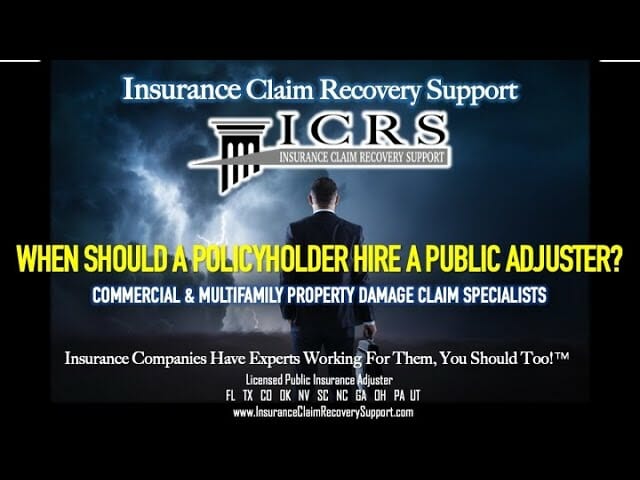
If you’re a policyholder who owns or manages real estate that has been damaged by a covered cause of loss under your insurance policy and you aren’t getting the property damage insurance claim settlement you deserve, you may want to consider hiring a good public adjuster to represent your interests. Here are some common scenarios […]
What is a public adjuster?

Assuming your insurance company will settle your claim fairly and promptly on your behalf can result in financial disaster. A public adjuster is a private, independent, licensed, bonded, and professional claims adjuster who settles property damage insurance claims exclusively on behalf of the insured that the policyholder may hire to help settle an insurance claim […]
Video: What is a good public adjuster?
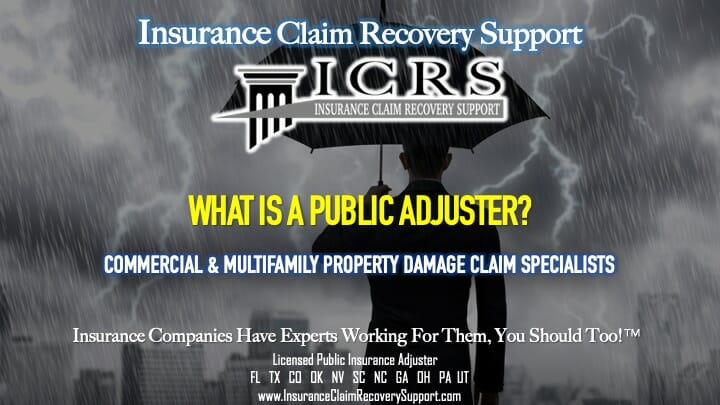
How does a Policyholder qualify a good public insurance adjuster from a bad one? A public insurance adjuster is an independent licensed advocate that a policyholder may hire to help settle an insurance claim on their behalf. Among the voluminous amount of information online about the insurance claim process, getting professional help from a trustworthy […]
How Some Insurance Companies Intentionally Delay, Deny and Underpay Claims

Not all, but many bad faith Insurance companies intentionally delay, deny and underpay claims. Of course, these tactics are improper, unethical, and immoral but in a pathetic attempt to gin up business for their defense law firm, a recent blog post targeting bad faith insurance companies outlines the benefits of purposely delaying insurance claims as an […]
What Is A Public Insurance Adjuster And How Are They Hired?
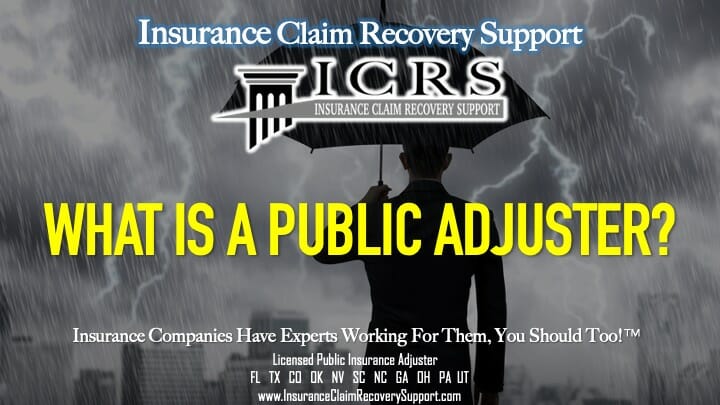
What You Need to Know About Public Adjusters A public adjuster is a private, independent, licensed, bonded, and professional claims adjuster who settles property damage insurance claims exclusively on behalf of the insured that the policyholder may hire to help settle an insurance claim on their behalf. Public adjusters only represent the interests of the […]


